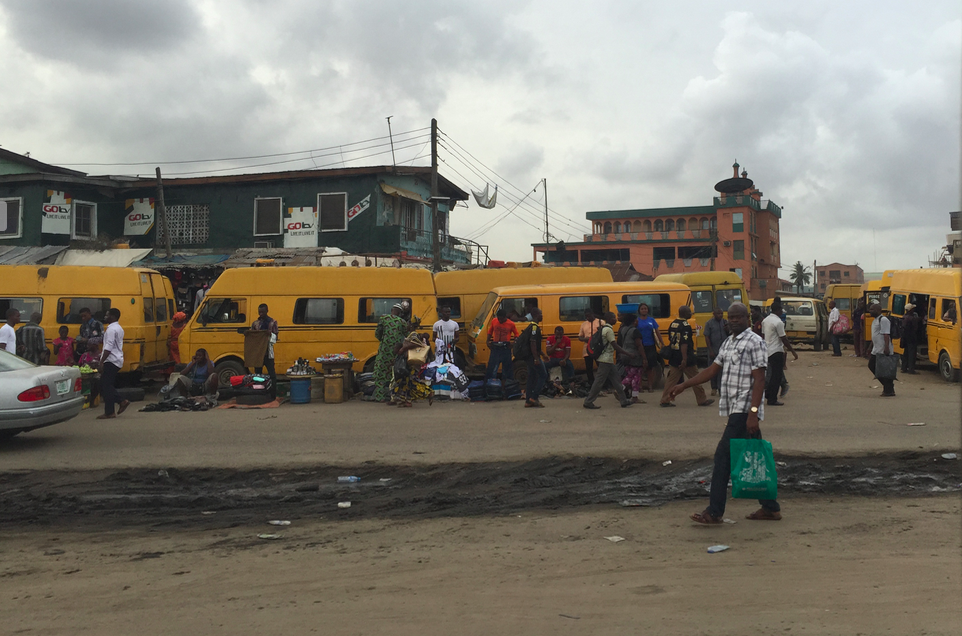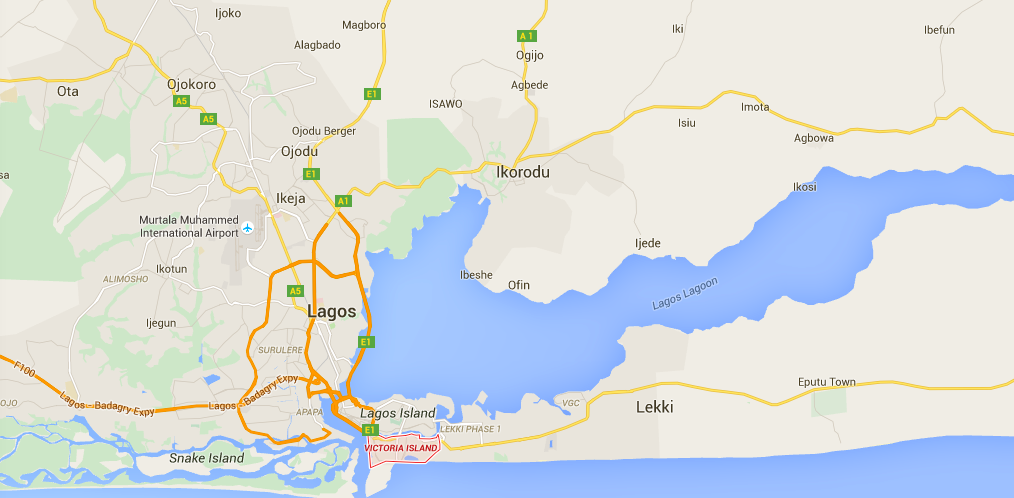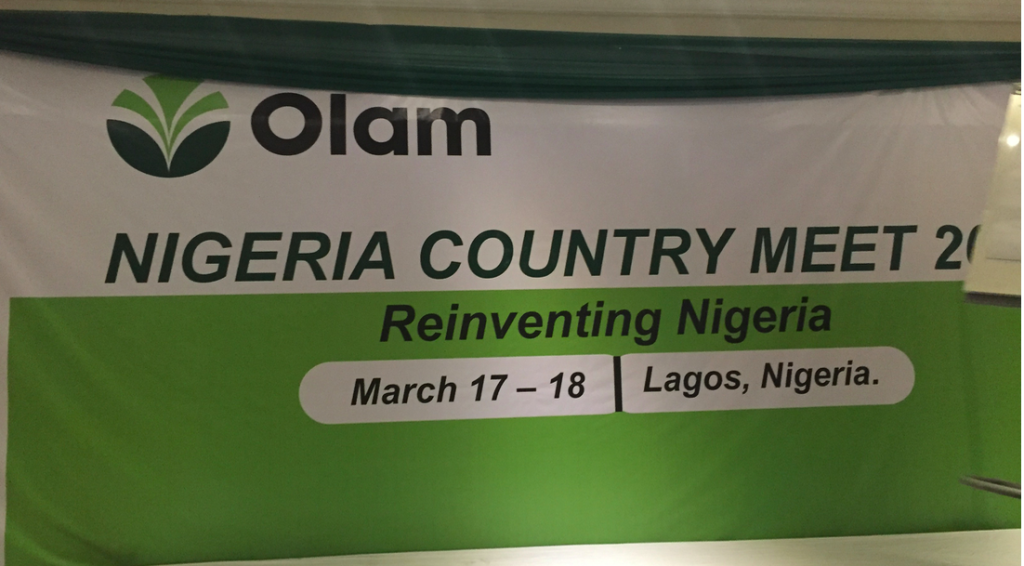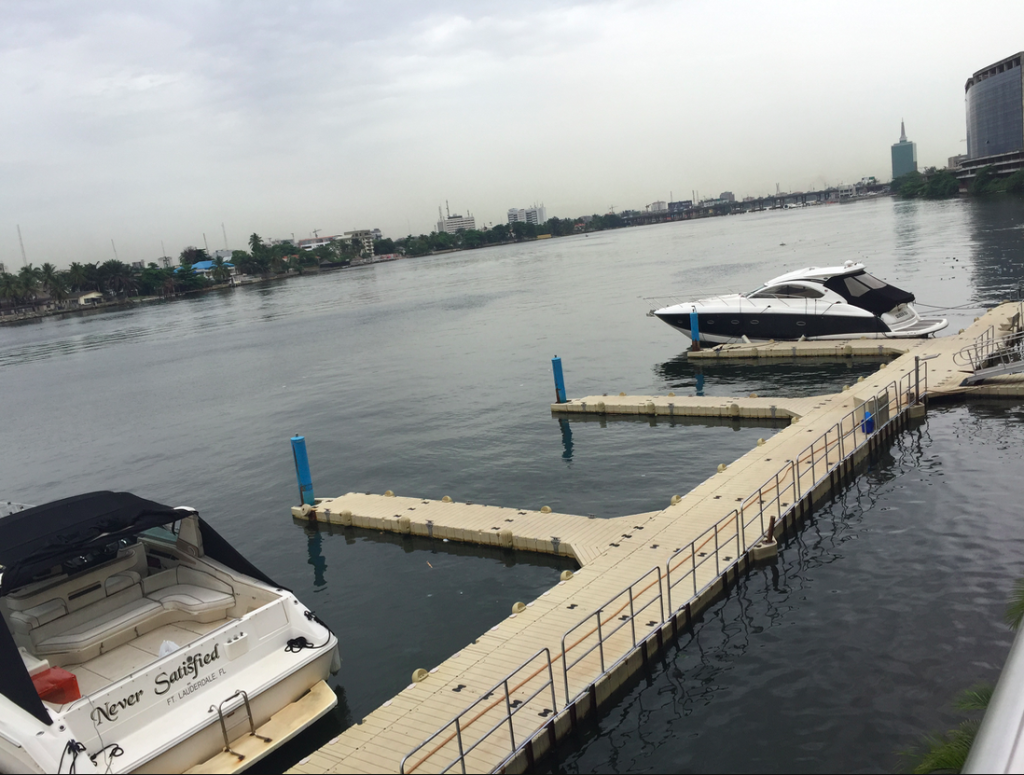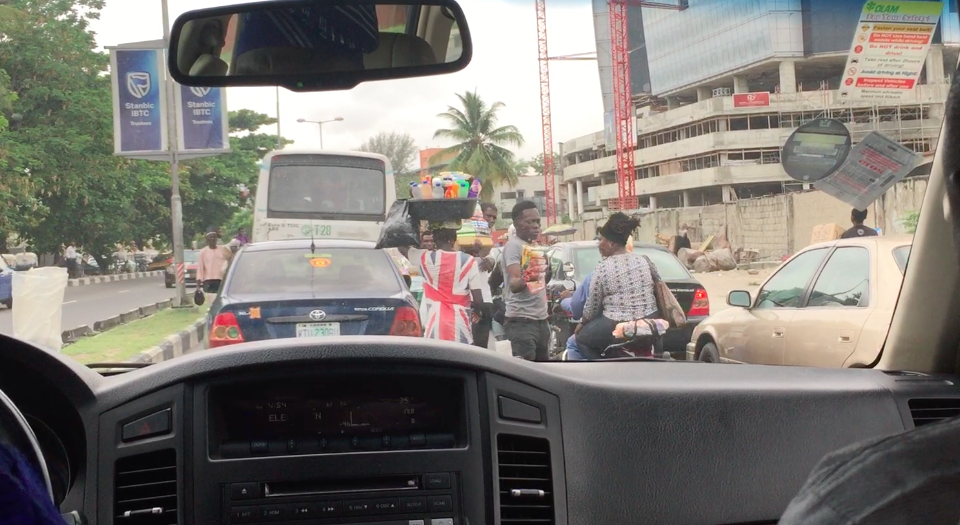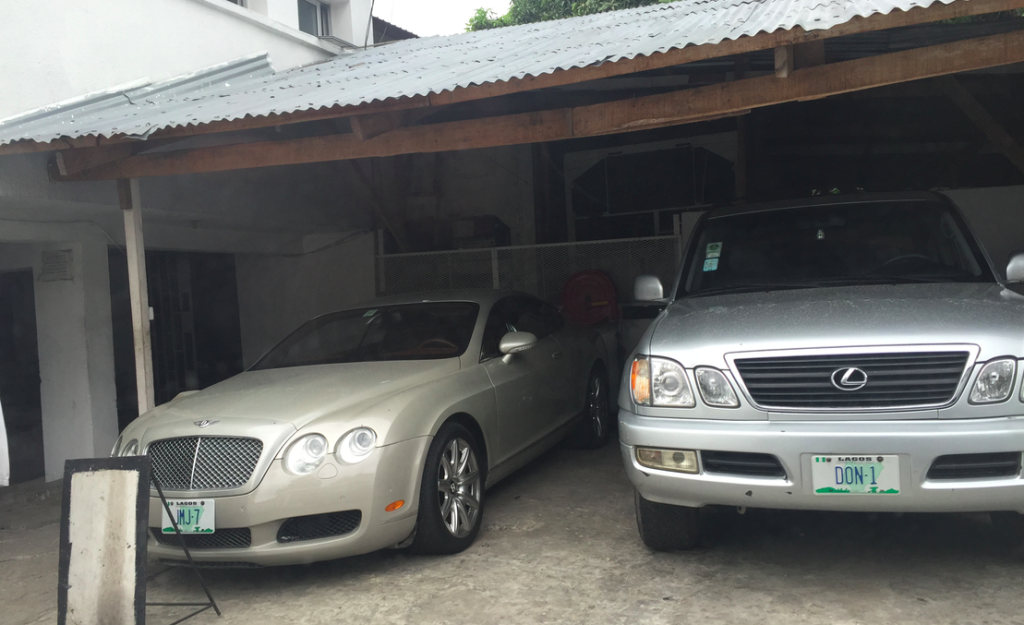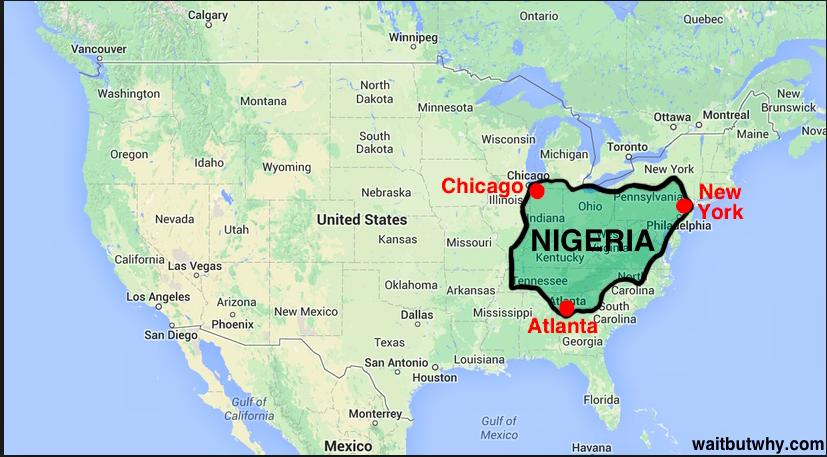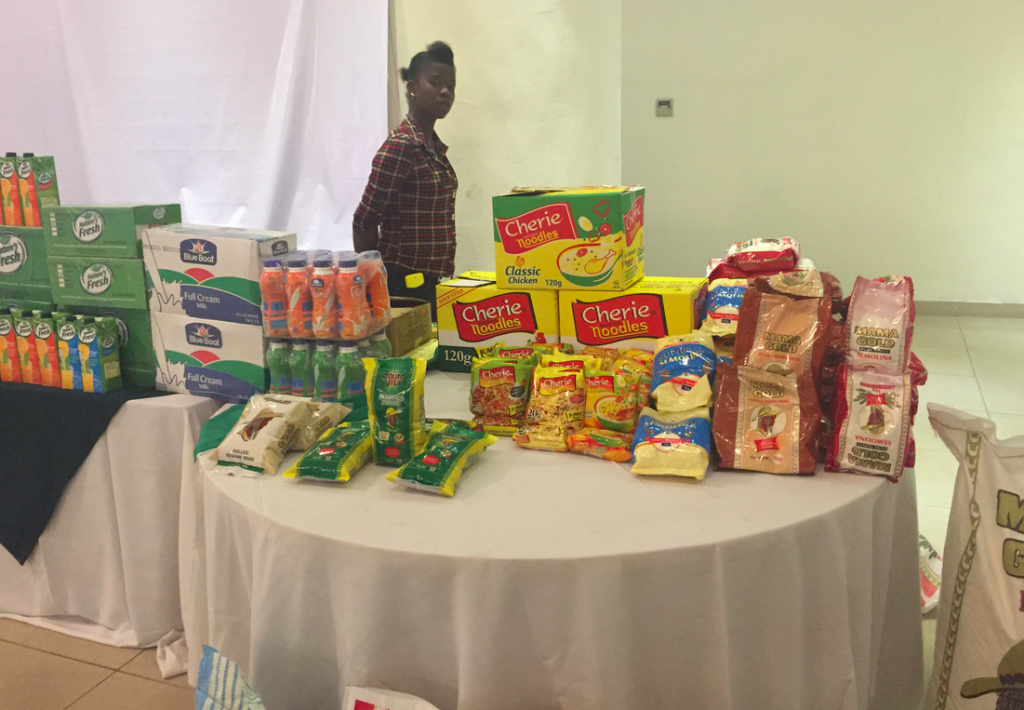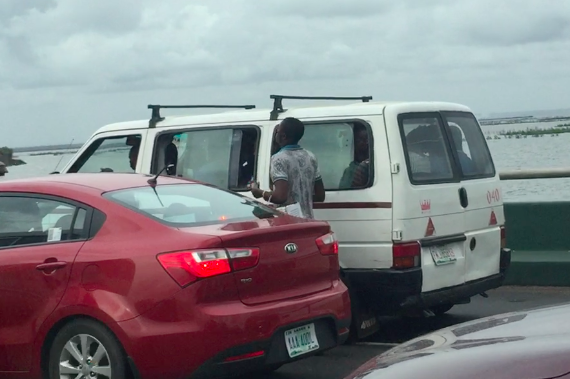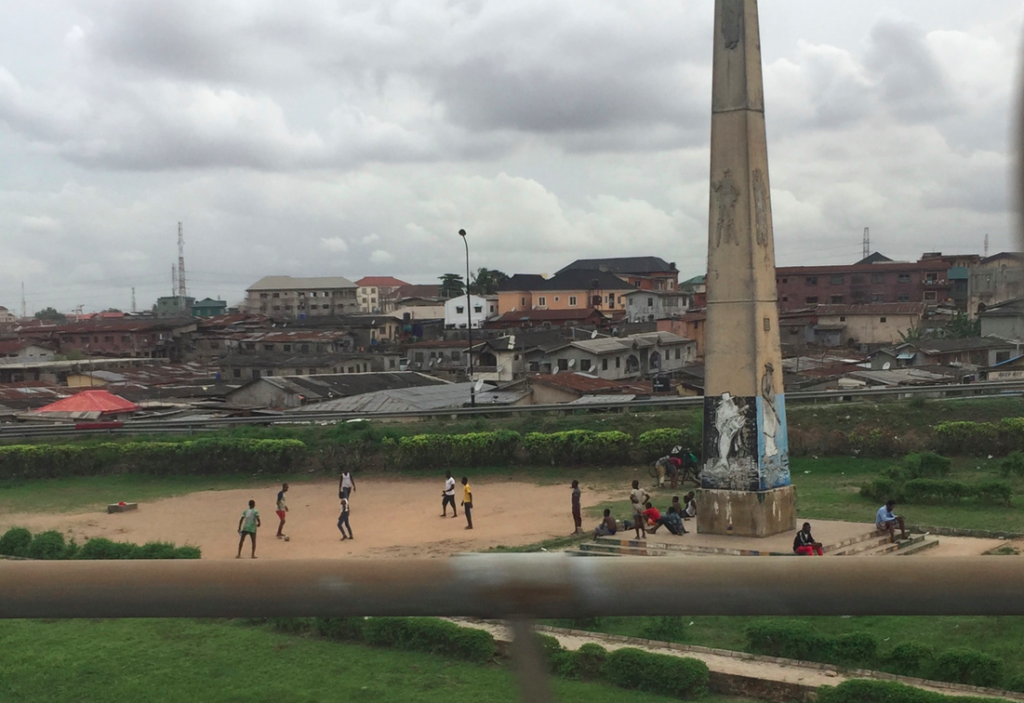
Victoria Island and Lagos Island, Lagos, Nigeria. Island number 6 (out of 100), country number 5 (out of 25), months number 3 (out of 100.)
Let’s call him Friday. (Apparently it’s not uncommon to name boys in Nigeria after the day the boy is born, and since this happened on a Friday let’s give that name to him.)
Friday is running after a car who’s driver just bought some cookies from him.
The Lagos traffic is jammed, and it feels like we are moving at snail-pace, but looking at Friday sprinting as fast as he can to catch up with his customer to get his money it becomes clear to me that “slow” in a car on the highway is still a considerable speed for someone on two feet.
It doesn’t help him that he is carrying a huge load of cookies as he is running.
I will never know his real name because I am observing him from the comfort of my car which is just behind his customers car. All I can do is to just watch him run to try to catch up to get paid.
He will become a symbol of our goal as humans on this trip to Nigeria for me.
(Link to where I am on google maps.)
I am in the country to deliver a speech for the managers of Olam, a food and commodities company with a big presence in Nigeria.
The conference is held in a big hall just next to Radisson Blue hotel on Victoria Island in the commercial capital of Nigeria: Lagos.
I ask one of the hostesses who is taking care of me to tell me something about this island.
She says: “This is where the ones with money live.”
I also ask my driver to tell me something about this island. He says: “This is where the money live.”
It’s becoming clear that we are in the posh part of town.
They could have fooled me.
It reminds me more of a slum than of an African Beverly Hills.
But when I look a bit closer and I see a dusty Bentley hiding under a metal roof. I see Louis Vuitton bags on the women in the bar of the Radisson.
I am back in the car watching Friday as I my driver is trying to get me to the airport in time for my flight.
Friday has kicked off his flip flops in the middle of the road to make it possible for him to run faster. He is sprinting barefoot on the highway desperate to get his money for the cookies that the customer already received thorugh the car window. He is still carrying all his left over merchendise and he is trying to balance it while running. It’s perhaps 30-40 packages of cookies. They look bulky and heavy.
He probably has been running for 500-600 meters all ready.
I think back to the conference I had been speaking at.
Olam is a very impressive company. A company dedicated to feeding Nigeria by producing staples like flour and rice in a more effective way.
The people of Nigeria (and the rest of us) should be thankful that they do what they do, because Nigeria needs nothing short of a food revolution to be able to handle its next few decades.
The country of 173 million of course has a lot of good land to grow food, and a climate that is great for farming.
But the statistics for how Nigeria will grow in the future are staggering.
Some say that Nigeria will have so many kids in the next few years that it will be bigger than the USA in 2050. Extra amazing if you consider the size of Nigeria compared to the USA.
And the way Nigeria grows, harvests and produces its food are just too old fashioned.
Olam is trying to change that.
By introducing modern farming techniques and the latest management techniques that have been able to improve the quality and quantaty of the food they produces in a very impressive way.
It is when I hear stories like this that I get so optimistic for the world. How companies dedicated to excellence just decide to make things so much better – in this case in order to feed more people in Africa.
Friday has dropped his merchendise on the side of the road.
He has probably now been running after the car for 1 km or more
And suddenly he reaches the car!
Friday puts the money into his pocket, slows down, and just before catching his breath he does a little dance ; as to celebrate the money that he just was able collect.
As he disappears in the background of passing cars I see him slowly walking back to collect his remaining products – and later his flip flops – so that he can start over again selling cookies and snacks to the drivers on the highway.
There are so many people like him on Victoria Island. In Lagos. In Nigeria. In the world.
People hustling, running, and sweating just to make a few bucks so that they can buy some food and survive.
It’s when I visit places like Nigeria and see people like Friday that I get overwhelmed by the task that humanity still faces before we can relax and tell ourselves that we are done.
